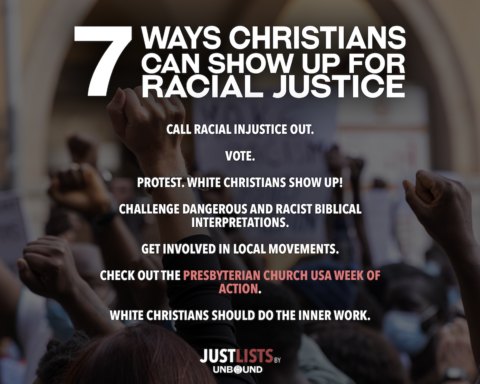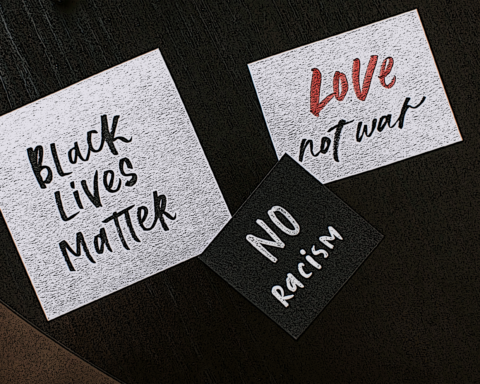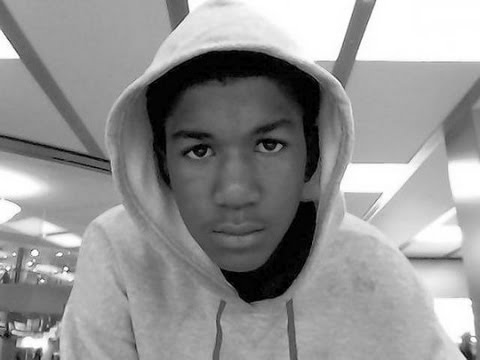Called to Ministry on the Upper Sioux Reservation
Video used with permission from the Presbyterian Historical Society, part of the Living History film project.
Fern Cloud shares her perspectives as a Native American Presbyterian
Edited Transcript:
My name is Fern Cloud. I was born in the Sisseton Wahpeton Dakota reservation in Northeastern South Dakota. In my formative years, my mother was definitely the person who really helped me, shaped me, I suppose, to who I am today. Her foundation for me was “Don’t lie, don’t steal, don’t swear, and never get on welfare.”
I got to meet all my relatives on my mother’s side who were Presbyterian, in the ministry themselves. But in 1978, I was giving birth to my youngest daughter, and there were complications. I had to pray, and I asked God, “Don’t let us die and I’ll do anything for you.” That was the first time I ever acknowledged there was a God, and my life turned around from that.
I wanted to be a good person and eventually that led me to study the Bible and learn more about Christianity. Not so much the doctrines but what the Bible had to say, so I went to Bible college.
Most of my life has been in a lay ministry, working mostly with street people and young people. I didn’t really become a Presbyterian until 2000; I was non-denominational before that.
___________________________________________
The joy that I have as pastor of Pejuhutazizi Presbyterian Church on the Upper Sioux Reservation is being able to bring the Gospel message in the Native context.
___________________________________________
I was called by the Upper Sioux Community in Granite Falls, Minnesota. They called me and asked me if I would be their pastor because the tribal vice chairperson, I had worked with her. She really liked my experiential life in terms of balancing my culture and traditions with my Christian faith. So I came on board, and I felt it was God because I didn’t pursue it – it just came to me.
I just learned, the first five years I was a pastor learning, just taking it one day at a time!
The joy that I have as pastor of Pejuhutazizi Presbyterian Church on the Upper Sioux Reservation, I think, is being able to bring the Gospel message in the Native context. And being able to have the freedom to minister in my language and sing in our language. It just makes total sense that that’s the way that God would have it.
And also, as I became more and more visible within our church, our presbytery recognized my skills. They’ve been adding more and more responsibilities within the presbytery and the synod and GA. I’ve really become a real active part of the whole PC(USA)’s hierarchy of administrations.
Nobody likes to do funerals. Really! No, that’s the only challenge, the only part that I really struggle with. It’s just a tough piece of life for Native People because it’s so much part of their lives. It’s just loss after loss after loss.
___________________________________________
So many of our people were told they couldn’t be Christian and Indian; they had to choose.
___________________________________________
The whole concept of the ‘Learning Camp’ was built on respect. We’ve been partnering with Baltimore, Maryland, Brown Memorial for 3 years now. They come, and they don’t bring Vacation Bible School in the old-school sense, you know, “We come to bring Jesus to you.” That’s been a very painful experience for many of the older people. So we looked at that and we decided that we needed to do something new in partnerships for our youth. So they are loving Christians who come, and by their actions they display the Gospel message and love of Christ as they help our students prepare for school with their academics.
I went to the Big Tent several years ago on missions and when does mission become “toxic” or making people dependent. In years past that’s the way that Native American communities were looked at. We were just set up to be dependent.
Our community church members are actually the teachers who work alongside them in the learning camp. So it isn’t like “They’re gonna come and teach our kids;” no, we’re right there with them.
The Dakota people in Minnesota were the first contact with the early Presbyterian Missionaries. John Williamson and the [?] missionaries, they were very supportive in helping us to retain our language. They put together a dictionary, and they allowed us to preach and sing in our language. They really were supportive of keeping us as much in our culture, but bringing the Gospel message just to make our culture even better.
___________________________________________
The Native People are really a vital part in the Body of Christ, especially because America is our homeland. The Creator put us here as stewards of this land.
___________________________________________
I am actually a great-great-granddaughter of Thaoyate Duta, or Little Crow. He was the Chief of the Dakota people that actually allowed the Presbyterians – Williamson and Stephen Riggs – to come in and build a school and a church. My great-great-grandmothers, they were their first students, and they were their first congregation, so you know, I’m very much connected.
I don’t think it’s an accident or a coincidence that my journey has brought me back to Minnesota. So many of our people were told they couldn’t be Christian and Indian; they had to choose. That’s why I went to Bible college, that’s why I studied the Bible, so that I could make sense of how could I be a Native Person and a Christian.
The Native People are really a vital part in the Body of Christ, especially because America is our homeland. The Creator put us here as stewards of this land. So I’m really excited that the Native People are becoming more visible and a voice, a valued voice within the PC(USA).
*****
The Living History film project features diverse experiences and stories told firsthand by American Presbyterians. Believing that every one of us shapes history in our everyday lives, we aim to educate and inspire through interviews with Presbyterians, asking: how do we make history together?
Read more articles in this issue Call to Confession: Race, White Privilege and the Church!






Unbound Social